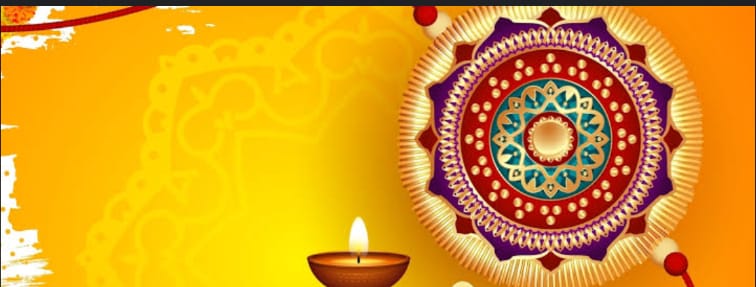RAKSHABANDHAN : SIBLINGS STAND BY EACH OTHER
By Anshika Khera

Raksha Bandhan, also known simply as Rakhi, is a cherished Indian festival that celebrates the unique bond of love, care, and protection between brothers and sisters. The phrase “Raksha Bandhan” literally means “the bond of protection,” signifying the promise a brother makes to safeguard his sister throughout life, and the sister’s prayer for her brother’s happiness, health, and prosperity.
The origins of Raksha Bandhan can be traced back to ancient Indian history and mythology:
Draupadi and Krishna According to the Mahabharata, when Krishna injured his finger, Draupadi tore a piece of her sari to bandage it. Moved by her care, Krishna promised to protect her in all circumstances.
Rani Karnavati and Emperor Humayun The queen of Mewar sent a rakhi to Mughal Emperor Humayun when her kingdom was threatened. Honoring the sacred thread, Humayun rushed to her aid.
These tales highlight the essence of the festival protection, trust, and love.
Traditionally between biological siblings, today rakhis are also tied to cousins, close friends, and even as a gesture of harmony across communities.
In contemporary times, Raksha Bandhan has evolved beyond gender roles. Sisters also pledge to protect their brothers, and people celebrate the festival as a symbol of mutual care. Even geographical distance doesn’t stop the tradition – rakhis are sent via post or online deliveries.
Raksha Bandhan is more than just a ritual; it is an emotional thread weaving together love, respect, and a sense of duty between siblings. In a rapidly changing world, festivals like Raksha Bandhan remind us of the importance of relationships, compassion, and unity in our lives.
